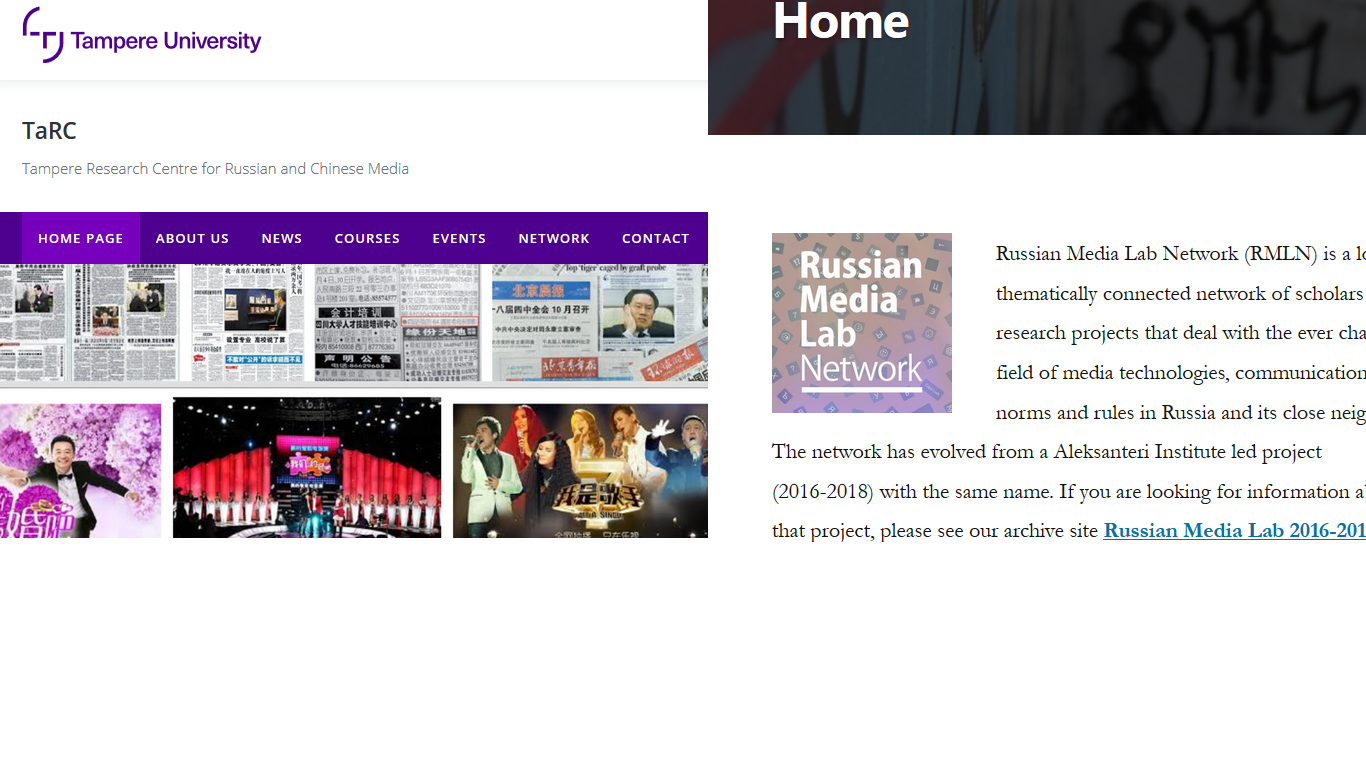The collaborative initiative between TaRC and the Russian Media Lab Network (University of Helsinki), Online Talks on Russian Media, returns in November with another topical presentation on the ongoing war in Ukraine.
On Tuesday 8 November, Roman Horbyk (University of Örebro, Sweden) presents his study “Towards the Mobile Phone Doctrine(s): Hybridization of Civilian and Military Uses of Mobile Communication in the Russo-Ukrainian War”.
The Russo-Ukrainian War has produced significant evidence of the broad and unorthodox use of media infrastructure and communication technology since 2014. In this talk, Dr Horbyk will focus on the major trends highlighting how a mobile phone — an ordinary civilian device — has become weaponized and turned into a hybrid tool that integrates a number of peaceful and combat functions.
He will present the final results of a two-year research project based on participant observation in the vicinity of the frontline and dozens of interviews with military servicemen and women, civilian refugees and frontline populations, government officials and non-governmental activists, which allows constructing a complex typology for the frontline use of mobiles in the spirit of actor-network theory (Latour 2005).
One of the problems in the growing subfield of mediatization of war or “digital war” (Hoskins & O’Loughlin 2015; Merrin 2018) is evidence on how exactly civilian communication devices become integrated with warfare, so the study contributes to solving a major theoretical problem in media and communication studies and advances understanding of Ukraine and its networked publics — powered largely by mobile and web communication — as a key factor in Ukraine’s resistance and resilience.
A variety of personal purposes, such as private communication and entertainment, are combined in the same device with wiretapping, fire targeting, minefield mapping, and combat communication. Mobiles supplant old or unavailable equipment and fill gaps in military infrastructure, becoming weaponized and contributing to the hybridization of the military and the intimate, and of war and peace. At the same time, there are signs of an emerging Russian doctrine of intentionally destroying mobile communication infrastructure as well as targeting civilian mobile phone users.
These results imply the role of mobiles as a mediated extension of battlefield, question the very definition of what constitutes weapon as tool of combat, and point out to the role of imposed mobile blackout in Russian genocidal war crimes.
Speaker’s bio:
Roman Horbyk (born 1985, Kyiv) is a Senior Lecturer at Örebro University (Sweden). He has also worked as postdoctoral researcher at Södertörn University and Umeå University after defending two dissertations, on illustrated press in the 1920s Weimar Republic and Soviet Ukraine (Kyiv National Taras Shevchenko University, 2015) and on media power in representations of Europe in Ukraine, Russia and Poland during Euromaidan (Södertörn University, 2017).
His published studies are interdisciplinary and focus on various aspects of postcolonial theory, gender studies, sociolinguistics, media power, history of representations and ideas. Roman has also extensively worked as journalist, publishing articles in Ukraine, Sweden, Denmark, Germany, and Brazil. He is active as playwright and screenwriter whose most notable credits include Pryputni (2017).
Horbyk’s current research project deals with how mobile phones are used by Ukrainian soldiers and civilians in war. A study based on it received the Top Paper Award at the International Communication Association’s annual conference in Paris, 2022.
Dr Horbyk’s Online Talk will be organized on Zoom on Tuesday 8 November from 12:00 to 13:30 (Helsinki time, UTC+2).
If you want to participate and get emails about the next online talks, please leave your contact information here by noon on Monday 7 November. If you have registered for Online Talks or the Russian Media Lab Network email list before, no need to register again! We will send you the information.

